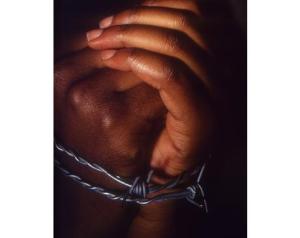_
This article was written by Momena Billah. Momena is a Muslim and an Interfaith Scholar. She is currently a senior at DePaul University, and this is her first year as a Scholar.
_
As globalization and the internet informs and connects us to the lives of human beings across the globe, it may be worthwhile to understand our common denominator, what it means to be human? Philosophies, literature, religions and even Hollywood have delved into this vast task of explicating and demonstrating the state of “humanness.” If our search is for an intrinsic value that a human being possesses regardless of their external religious affiliation, then we need to seek that understanding from within ourselves. To inquire further necessitates the guidance of religion, especially if we are adherents to any of the monotheistic traditions of Judaism, Christianity or Islam.
As a Muslim, it is only natural that I turn to the prime source of explicit Divine Knowledge which is manifest in the Quran. From a Quranic worldview, the human being is the khalifa [ku-leef-a] successor or representative of God on Earth. The evidence for and implications of this title are enormous.
Being a human, irrespective of creed, automatically entitles one to be a khalifa, hence a worthy, dignified creation on the face of this planet. The physical and spiritual dimensions of a human being demonstrate the inherent worth of a human. The Quran explicitly states, “We have indeed created man in the best of molds” when referring to the physical beauty of a human (95:4).
If we ever contemplate about the physical appearance of a human, it is evident that humans are upright in stature and bipedal, which is a visible reminder of the difference between humans and animals. It is necessary to distinguish between humans and all other creations on Earth since it is only humans that are the representatives of the Supreme One.
Furthermore, if we take account of humanity’s progress in the realm of knowledge encompassing the sciences, the arts, the social sciences, technology etc. it is obvious that no other creation has matched or will match the sophistication of what humans have developed. This brings us to another point, the supremacy of the human’s aql or intellect. The Quran encourages the reader to contemplate on the initial stages of a human’s creation: “It is He who has created you from dust then from a sperm-drop, then from a clot; then he brings you out as a child for you to reach your age of full strength, then to become old — though some of you die before that — then to reach a time (of death) appointed and in order that you may reason (40:67).”
Here as in countless other verses, the human is encouraged to use her reasoning through the faculty of intellect to think. It is thanks to this blessing of intellect that humans have surpassed animals and progressed in the physical (material) knowledge.
There may arise a question in your mind that if the worth of humans is measured by contrasting them to animals and the possession of intellect, what about humans who are mentally impaired, are they less worthy? Certainly not. Above all else, the title of khalifa is bestowed upon humans because of the inherent quality of the rooh soul. It is the spiritual dimension of humans that is the primary reason for the high regard that the monotheistic faiths place upon humans. As a result, superfluous judgements cease to exist in our daily interactions because we stop to view people in terms of black, white, or brown person, male or female, and even rich or poor.
What we see is a Divine soul contained within a body, “So when I have made him complete (fashioned him) and breathed into him of My spirit, fall down prostrating to him (15:29).” This verse refers to Angels prostrating before a human after the entrance of the soul within the body! Therefore, when we come across any human being, they deserve our respect due to their possession of a soul. Consequently, there are many parables of prophets from Divine revelation to draw our attention to individuals who have demonstrated spiritual aptitude through the most testing of situations.
This worldview that a human is distinct from animals is in contention with what we are taught since grade school about the similarity, in fact, the categorization of a human as an animal. As we go through the motions of everyday life, we are conditioned to view humans as animals and this is constantly reinforced through education and the media. The danger is that such a view is easily manipulated to dehumanize fellow humans justifying the most trivial gossip about a person to the atrocious killing of masses of people.
It is imperative that we become critical of various conceptions of humans to a more holistic approach that takes the spiritual and physical dimensions of a human being to accurately assess what it means to be a human being. That approach is clear within a monotheistic worldview that sees humans as worthy beings.
